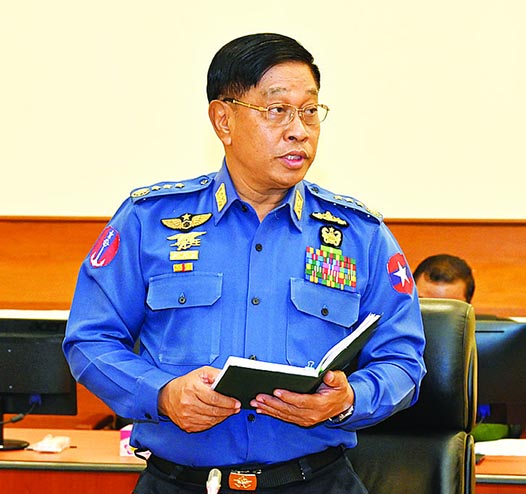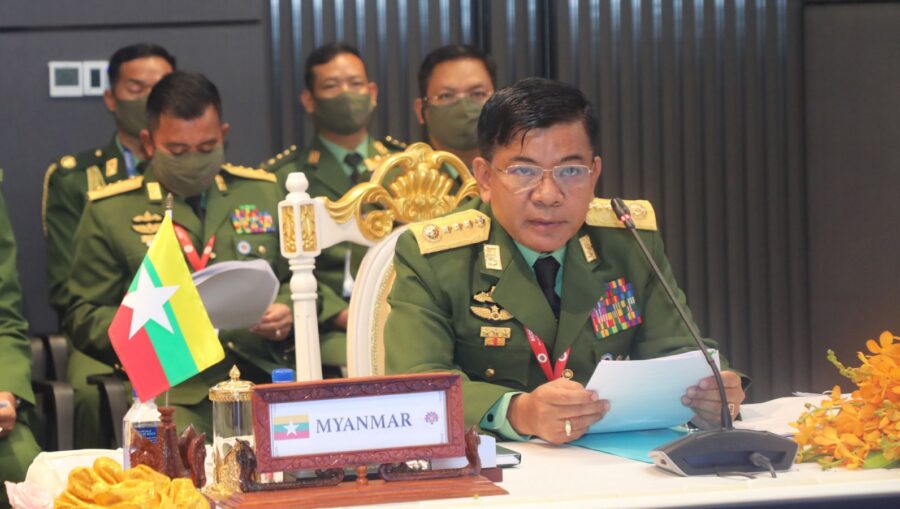Myanmar’s military regime has formed a national-level body to oversee implementation of the recently activated conscription law as the first step to introduce mandatory military service for the country’s young people.
A notice issued by the regime on Tuesday night said the 18-member body is led by deputy prime minister and defense minister Tin Aung San and includes the home affairs minister, border affairs minister, quartermaster-general, adjutant-general, and judge advocate-general. Chief of General Staff (army, navy, airforce) Maung Maung Aye is deputy chairman.
The central body will form recruitment branches at regional, state, district and township levels under Section 7 of the national conscription law.
People who receive call-up letters will have to register with their township-level conscription body before going for a checkup at the military medical assessment board.
Failure to report to the conscription body or get a checkup is punishable by three years in prison. Feigning sickness or disability, deliberately making oneself sick or disabled, or delaying recovery to evade conscription is punishable by five years in prison.

Those jailed for evading military service will still have to serve after completing their sentence.
Junta spokesman Zaw Min Tun said around 13 million people – 6 million men and 7 million women – are eligible for compulsory military service under the law, and the recruitment process would start in April.
The law stipulates that all men aged 18 to 35 and women aged 18 to 27 have to serve. The age range for people with special expertise, such as doctors and engineers, is extended to 18-45 for men, and 18-35 for women.
The duration of military service is said to be no longer than two years, but those who are called up as technicians are required to serve for up to three years. Compulsory service can be extended by up to five years during a state of emergency, such as the current one.
The law’s enforcement comes amid heavy junta troop casualties in fighting against resistance forces, exacerbated by a recruitment crisis, desertions, and an almost complete lack of public support.

The law was first promulgated in 1959 under strongman General Ne Win, who three years later staged the first coup in Myanmar. The law was amended in 2010 under the previous junta led by Than Shwe but was never enforced under Ne Win, Than Shwe, Thein Sein’s quasi-civilian government, or the since-ousted National League for Democracy government.
Min Aung Hlaing has finally decided to enforce the law, three years after his coup sparked a popular revolt that is now gaining ground on multiple fronts.
Enforcement of the law has triggered widespread fear among the public. It is expected to exacerbate the brain drain and the border refugee crisis by driving more young people out of the country or into hiding. Observers say it will also present another opportunity for the junta to extort money from the public, especially wealthy families.
The parallel National Unity Government (NUG) has declared the law is illegitimate and urged people to ignore it.

















